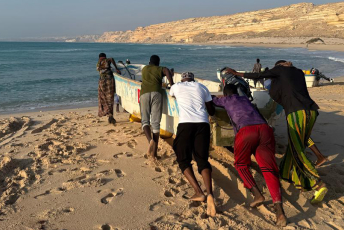Emerging forms of cross-border criminality constitute a pressing challenge that affects wildlife conservation and hinders development in countries like Niger, Chad, Cameroon, the Central African Republic and the Democratic Republic of Congo.
Criminal groups, allegedly originating from Sudan and South Sudan, are providing pastoralists in the Sahel, Lake Chad Basin area and Equatorial Africa with weapons; while others are disguising themselves as transhumant pastoralists to engage in wildlife crime, often on behalf of criminal networks located in Asia.
These activities target protected areas such as national parks and wildlife sanctuaries. Among other harmful effects, these countries are also losing potential eco-tourism income.
Reports state that the illegal wildlife trade and resultant insecurity costs Africa about €22 million a year in tourism. As pastoralism becomes associated with criminality, the price of cattle also decreases. Subsequently, countries like Chad – where 22% of the country's gross domestic product comes from taxes related to livestock farming – are losing revenue.
At a regional conference held in N’Djamena, Chad, in January 2019, delegates identified strategies to combat the growing insecurity stemming from poaching and other trans-national crimes in the region.
The countries concerned were represented in N’Djamena by ministers of security and defence, as well as those responsible for environment and forestry. They committed to a series of actions to curb or suppress the growing security threats to protected areas. Among these were to:
- Establish and operate multi-stakeholder and multi-sectoral platforms at regional, national and local levels to manage issues relating to criminality associated with poaching in protected areas and other wildlife crime;
- Establish and secure trans-border transhumance corridors;
- Use diplomatic channels to raise awareness in the countries of origin of the poachers; and in those through which illegal wildlife products are transported and where they end up;
- Address the operational deficiencies of state parties with respect to conservation services, including intelligence; and
- Develop income-generating programmes for pastoralists and local communities in protected areas.
Acknowledging that there is insufficient information about the dynamics of cross-border criminality associated with transhumance in the region, the states recommended further studies of the economic, social, political and security dynamics of the issue. They also stressed the need for an appropriate legal framework to ensure better governance.
This increased focus on transnational criminal groups might, however, have come too late. While states and their partners from non-governmental and inter-governmental organisations (NGOs and IGOs) hold conferences, poachers are taking advantage of weaknesses in their systems.
In Chad, a representative from the TRAFFIC wildlife monitoring network told ENACT that transnational criminal networks have been paying eco-guards and pastoralists up to a million CFA Francs (€1 525) a month to smuggle arms and commit wildlife crimes. The salary of a state-employed eco-guard is CFA Francs 60 000 (€91) a month, he added.
States in Central Africa and their NGO and IGO partners need to be more proactive and innovative, and act fast if they are to catch up with criminal groups. They also need to create more awareness in the countries concerned about the advantages of conservation. This includes persuading the general public of the economic, social and cultural benefits of protecting wildlife.
Agnes Ebo’o, Coordinator, and René Oyono, Researcher, ENACT Regional Organised Crime Observatory – Central Africa, ISS







